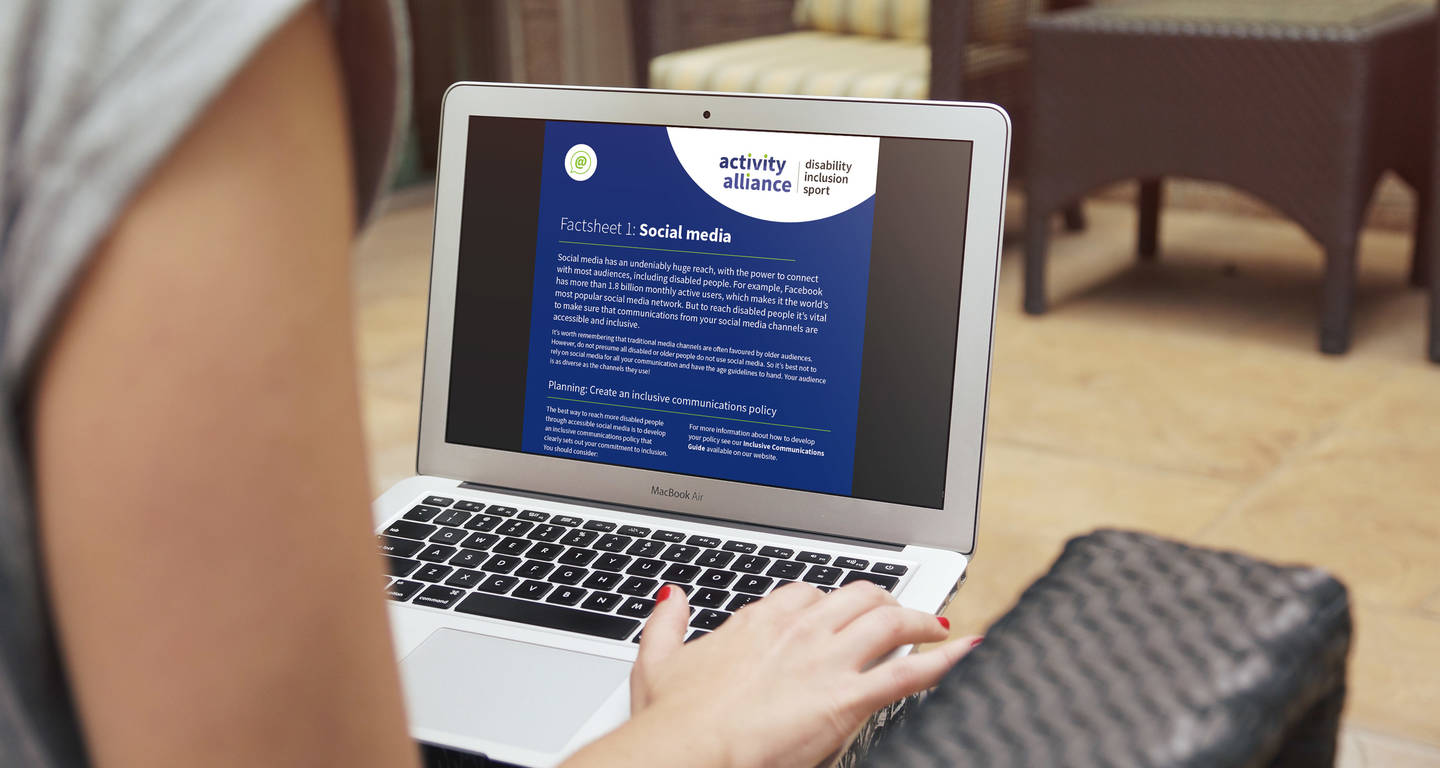Activity Alliance releases updated inclusive communications resource
Activity Alliance is adding to its bank of resources with a series of new factsheets that support providers to be more accessible and inclusive in their communications.
Since the first Inclusive Communications Guide launched in 2014, Activity Alliance is proud to be considered a leader in sport and active recreation on this important topic. As well as producing the Guide and its complementary film, Activity Alliance regularly advises partners and delivers workshops to raise awareness of the key principles. The impact has been notable with many local and national partners, leading to changes in their communication processes and promotions. One in five people in England have an impairment or long-term health condition - around 11.5 million people. However, currently, disabled people are twice as likely to be inactive as non-disabled people. There is a long way to go to address this imbalance, and accessible and inclusive communications play an important role in this.
One in five people in England have an impairment or long-term health condition - around 11.5 million people. However, currently, disabled people are twice as likely to be inactive as non-disabled people. There is a long way to go to address this imbalance, and accessible and inclusive communications play an important role in this.
As with any other large population group, there can be no one-size-fits-all approach to how or what is communicated with disabled people. Despite the advances in technology, a number of different factors or barriers can still prevent audiences from accessing communications.
Updated with the latest insight, these new ten factsheets aim to address the main communication barriers that many people experience when accessing opportunities. They provide clear guidance and practical tips on effective planning, design and delivery of accessible and inclusive marketing communications. The factsheets cover a range of subjects, channels, tools and platforms, including:
- Social media
- Promoting your events
- Digital communications
- Language and terminology
- Accessible communications on a budget
- Marketing campaigns
- Accessible design
- Photography
- Writing new stories
- Inclusive communications checklist
Sarah Brown-Fraser, Marketing and Communications Manager at Activity Alliance, said:
“Whilst there are lots of people working hard to make their activity accessible to everyone, we know it can be a challenge for many to get the message across effectively through inclusive marketing and communications. Many people, including disabled people, continually miss out in sporting communications- sometimes for reasons that would only require small changes to campaigns.
“Understanding people’s needs and preferences in communications can dramatically improve everyone’s engagement with their audiences. It can also open the door to new audiences, not reached before. These new factsheets are a fantastic addition to our inclusive communications offer and we hope more providers can maximise their opportunities with this new guidance.”
Adam Blaze, Strategic Lead for Disability at Sport England, said:
“Sport England welcomes Activity Alliance’s updated inclusive communications guidance, which builds on their extensive bank of existing resources. Our research shows that disabled people are twice as likely to be inactive as non-disabled people, and that’s why resources like this are so important in removing barriers to participation.
“Enabling providers to improve their communication with disabled people will lead to better access to and experience of sport and physical activity, helping to close the activity gap that exists between disabled and non-disabled people.”